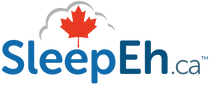Obstructive Sleep Apnea (OSA) is a prevalent condition in North America, affecting individuals of all ages and genders. CPAP therapy is considered the most effective treatment method, providing continuous air pressure to keep the airway open during sleep. However, the costs associated with CPAP equipment, masks, and maintenance can be substantial. Fortunately, in Canada, there are various healthcare initiatives and insurance coverage options available in each province to help mitigate these expenses.
For residents of Ontario, individuals must undergo a sleep study and receive a sleep apnea diagnosis from a sleep doctor in order to obtain a CPAP prescription. The Ministry of Health and Long-Term Care's Assistive Devices Program (ADP) offers significant support by subsidizing 75% of the approved CPAP machine cost, leaving patients responsible for only 25% of the expense. Additional programs such as the Ontario Disability Support Program (ODSP) and the Ontario Works Program (OWP) provide coverage for CPAP therapy to eligible individuals. It's important to note that sleep studies and consultations with sleep specialists are covered by the Ontario Health Insurance Plan (OHIP).
In Alberta, CPAP therapy funding is primarily available to citizens receiving social assistance, such as Income Support (IS) and Assured Income for the Severely Handicapped (AISH). Patients must undergo a sleep study and receive a diagnosis of moderate to severe sleep apnea to qualify for funding. Sleep studies can be conducted at any CPAP vendor for a service charge. Income Support (IS) provides coverage for CPAP devices up to a maximum of $1700 for a CPAP device and $2000 for an APAP device. In most cases, individuals without coverage from these programs or private insurance will need to bear the cost of CPAP expenses themselves. For more information, it is recommended to contact Alberta Health Services.
In British Columbia, public health insurance known as the Medical Services Plan (MSP) does not typically cover CPAP therapy expenses. However, there are certain circumstances where funding may be considered under the Employment and Assistance Regulation and the Employment and Assistance for Persons with Disabilities Regulation. The Ministry will assess funding for positive airway pressure devices when medically essential for the treatment of moderate to severe sleep apnea, validated by a sleep study.
In Quebec, approximately 80% of residents use private insurance to cover their CPAP expenses, as the Quebec Health Insurance Plan does not currently provide reimbursement. However, costs associated with the treatment are eligible for the medical expense tax credit. Sleep studies are usually conducted at hospitals, but the waiting list can be quite long, prompting many individuals to opt for private sleep studies at local vendors.
Saskatchewan offers CPAP systems to patients, but they are responsible for purchasing their own masks, humidifiers, and necessary accessories. Since October 1, 2017, the province has allowed patients with moderate to severe sleep apnea to receive a loaned CPAP machine at a cost of $275 for the duration of its use.
In Manitoba, starting from April 23, 2018, there is an additional co-payment of $500 for the initial or replacement CPAP set up. The Winnipeg Regional Health Authority (WRHA) announces that the remaining costs and service fees will continue to be covered. However, individuals will be responsible for the expenses related to accessories required for their therapy going forward. Sleep studies and CPAP trials are typically conducted at hospitals in both Saskatchewan and Manitoba.
Unfortunately, many provinces, such as Newfoundland, offer limited to no funding for CPAP machines. However, individuals who meet the necessary eligibility requirements for social assistance or provincial disability programs may have access to CPAP funding initiatives.
It's worth noting that New Brunswick has a Health Services Respiratory Program for eligible individuals. The Government of the Northwest Territories (GNWT) and Yukon sponsor the Extended Health Benefits for Seniors Program, specifically designed for seniors with moderate to severe OSA. Inuit and First Nations individuals are eligible for Medical Supplies and Equipment Benefits provided by the government. Additionally, Nova Scotia has a Sleep Apnea Refurbishment Program run by The Lung Association of Nova Scotia, actively seeking donations of pre-owned positive airway pressure units to redistribute to those in need.
If you qualify for CPAP funding programs, it is likely that a sleep study, accompanied by a sleep doctor's diagnosis of obstructive sleep apnea, will be required to obtain a prescription. To learn more about the procedure of acquiring a CPAP machine in your province, it is advisable to contact a local homecare provider that offers CPAP therapy. It's essential to remember that many personal health insurance companies offer reimbursement or coverage for the remaining expenses related to CPAP treatment. To obtain further information and clarification, it is recommended to reach out to your public health service, social assistance programs, or insurance agent.

